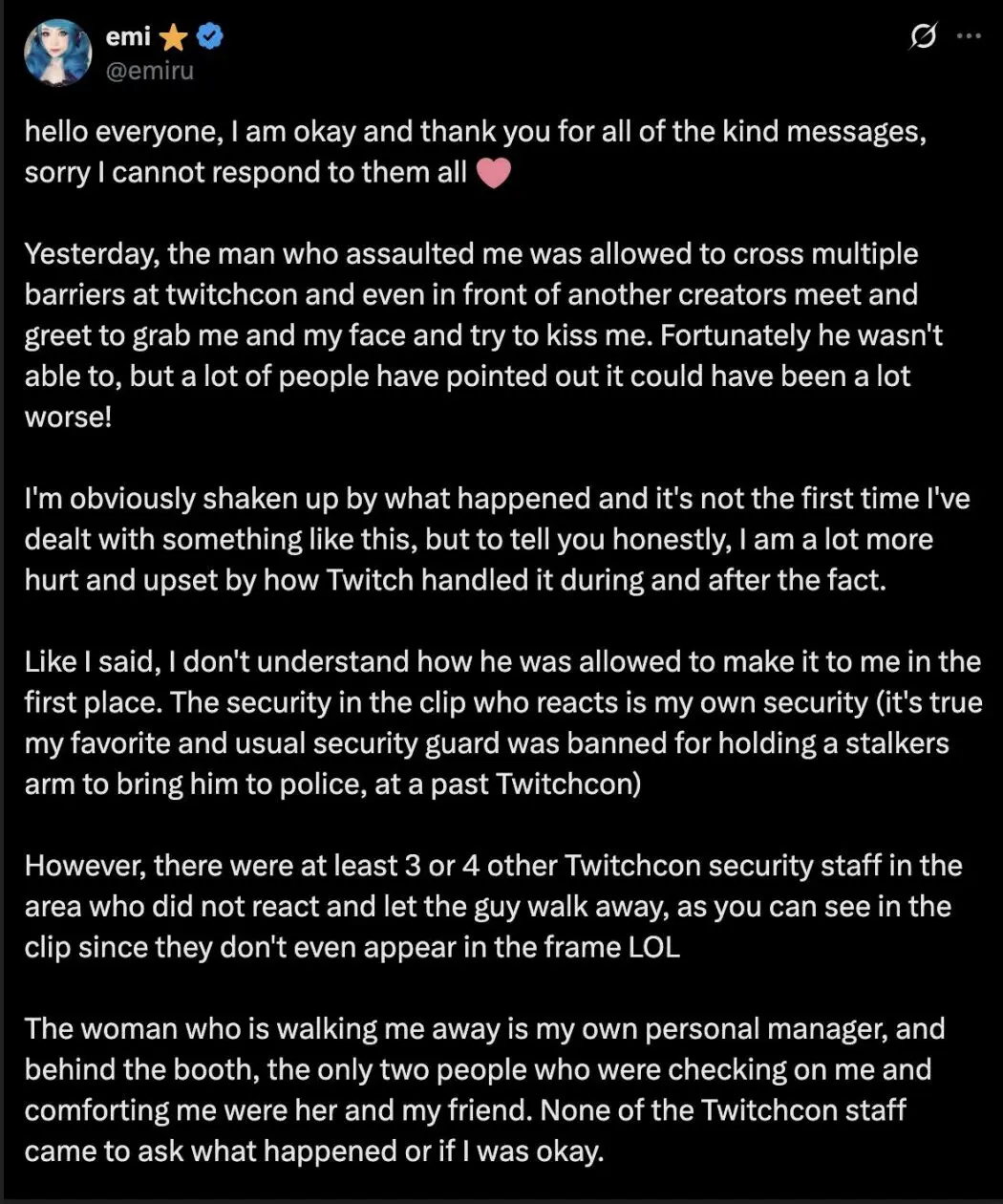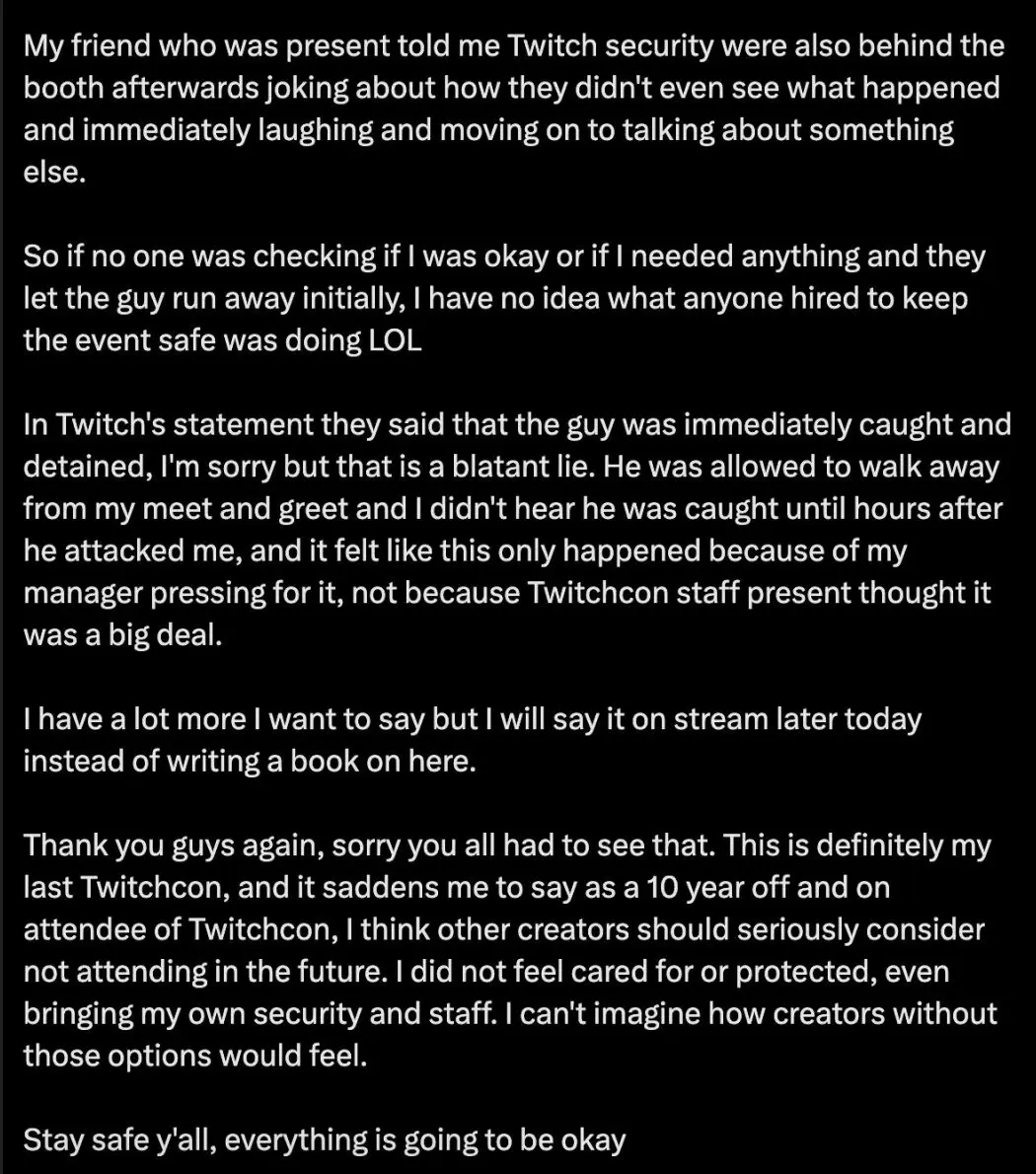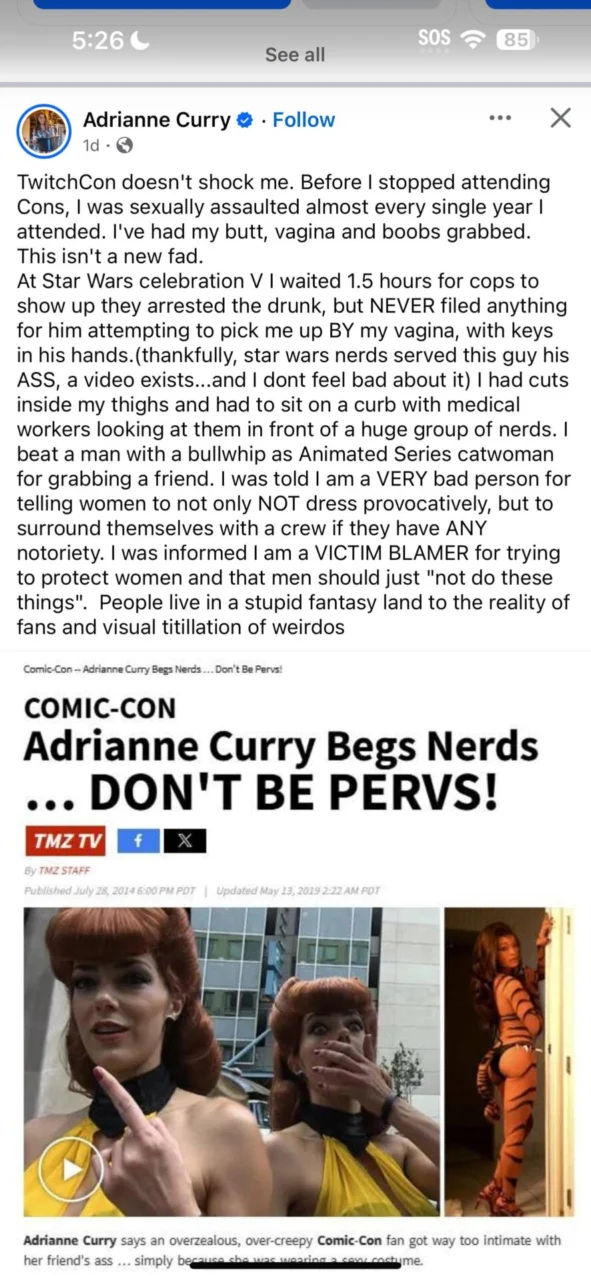When a Twitch fan assaulted popular streamer Emiru at TwitchCon 2025, the headlines were unsettling—but not surprising. What might’ve once been written off as fandom gone rogue has become uncomfortably familiar: a creator puts themselves physically in front of their audience, and an audience member crosses the line, often violently.
Saw so many women saying they weren’t going to be attending TwitchCon this year because they don’t feel safe, and then this happens to Emiru on day one pic.twitter.com/Yazc5VBPWF
— shenAndygans (@Sh3nAndygans) October 18, 2025
What crystallized in San Diego that weekend wasn't just one man’s boundary-shattering behavior. It was something online adult culture has fostered for years—parasocial entitlement, the toxic belief that streamers owe attention, affection, or access simply by showing up.
For anyone unfamiliar, TwitchCon is the platform’s flagship fan convention—part industry networking, part pop concert for internet personalities. It's also one of the increasingly rare places where digital creators meet their audiences in the flesh. Emiru, a prominent creator known for cosplay, variety gaming content, and her role in the OTK (One True King) collective, was doing just that—under the protection of private security—when a fan groped her without consent during an interaction.
Her security team responded right away. TwitchCon’s security team, however, did not. In fact, multiple reports allege that TwitchCon staff were seen laughing and dismissing the situation, allegedly noting that nobody even saw him get close to her. Not only was the moment mishandled in real time—it would later be mishandled again by the platform itself.

Image Source: TMZ

Image Source: TMZ
According to Emiru’s team, Twitch told her the perpetrator would be banned from the platform for just 30 days. This was not a case of online harassment or TOS violations. This was an assault on a platform-paired creator at Twitch’s own in-person event. That Twitch initially responded with less urgency than they would for a chatroom spammer says everything about where their priorities lie.
It took an escalation to Amazon’s head of security and Twitch’s head of risk for this man to finally receive what should’ve been an immediate consequence: an indefinite ban from the platform. The move came only after the situation became too public to ignore.
Adding insult to injury, Twitch CEO Dan Clancy gave an interview to journalist Taylor Lorenz in the wake of the incident, during which he suggested that creators have the power to shape their communities by curating their audiences online—a comment that sounded, to many, like a deflection from real-world responsibility. After widespread backlash, Clancy eventually issued a formal apology, acknowledging that Twitch had failed both “in allowing [the incident] to occur and in [its] response following.” He also admitted his initial comments lacked sensitivity and nuance. Emiru's fans noticed (and confirmed) the apology had been written by AI and felt it wasn't sincere.
But for many creators, the damage was already evident. Twitch—like many platforms that profit from intimate creator-fan relationships—has built itself atop the allure of access. The streamer chats with you. They laugh at your jokes. They share their feelings on a late-night “Just Chatting” stream. They show up in cosplay, cultivate fan culture, and in many cases, rely on their audiences for income. But when those relationships migrate offline, there’s very little to protect the creator from fans who don’t recognize that access doesn’t mean ownership.

This is the reality of parasocial environments: people begin to feel that because they see you, they know you. That watching someone on Twitch for dozens—or even hundreds—of hours entitles them to some slice of intimacy. For femme-presenting streamers, this often warps into objectification. And when the opportunity arises to meet a streamer in real life—at a con, at a meetup, at a photo op—that entitlement can manifest physically.
What happened to Emiru isn’t an isolated incident; it’s part of a long, distressing pattern. Other streamers, too, have had to manage stalkers and harassment. But what makes this case stand out is how institutionally unbothered Twitch seemed to be, until public backlash forced their hand. That a violent boundary-crossing happened on Twitch's watch—and that it took the involvement of Amazon's top security to correct course—raises uncomfortable questions about whether the company is prepared to protect the very creators it thrives on.
First, I want to be upfront and take accountability for the security incident that occurred during Emiru’s Meet and Greet. It shouldn’t have happened and we take that very seriously. We failed, both in allowing it to occur, and in our response following. We mismanaged our…
— Twitch (@Twitch) October 24, 2025
The apology, while necessary, cannot erase the platform’s reflexive instinct to minimize and move on. Nor does it address the broader issue: what will it take for Twitch to build systems that protect creators from parasocial violations, on- and offline? Not just react after the fact, but actually plan for the inevitability that some fans don’t understand where performance ends and personhood begins.
Parasocial entitlement isn't just a buzzword—it’s a liability. And Twitch, now more than ever, needs to figure out who it’s protecting: the people bringing in millions of viewers, or the strangers crashing their meet-and-greets with violence. Because if Emiru, with private security and enormous visibility, can be treated like just another silhouette in a selfie line—how safe is anyone else?